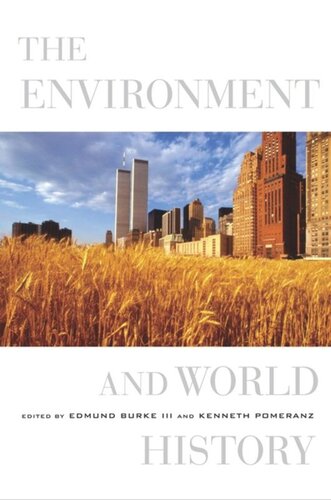

Most ebook files are in PDF format, so you can easily read them using various software such as Foxit Reader or directly on the Google Chrome browser.
Some ebook files are released by publishers in other formats such as .awz, .mobi, .epub, .fb2, etc. You may need to install specific software to read these formats on mobile/PC, such as Calibre.
Please read the tutorial at this link: https://ebookbell.com/faq
We offer FREE conversion to the popular formats you request; however, this may take some time. Therefore, right after payment, please email us, and we will try to provide the service as quickly as possible.
For some exceptional file formats or broken links (if any), please refrain from opening any disputes. Instead, email us first, and we will try to assist within a maximum of 6 hours.
EbookBell Team

4.8
14 reviewsSince around 1500 C.E., humans have shaped the global environment in ways that were previously unimaginable. Bringing together leading environmental historians and world historians, this book offers an overview of global environmental history throughout this remarkable 500-year period. In eleven essays, the contributors examine the connections between environmental change and other major topics of early modern and modern world history: population growth, commercialization, imperialism, industrialization, the fossil fuel revolution, and more. Rather than attributing environmental change largely to European science, technology, and capitalism, the essays illuminate a series of culturally distinctive, yet often parallel developments arising in many parts of the world, leading to intensified exploitation of land and water.
The wide range of regional studies—including some in Russia, China, the Middle East, India, Southeast Asia, Latin America, Southern Africa, and Western Europe—together with the book's broader thematic essays makes The Environment and World History ideal for courses that seek to incorporate the environment and environmental change more fully into a truly integrative understanding of world history.
CONTRIBUTORS: Michael Adas, William Beinart, Edmund Burke III, Mark Cioc, Kenneth Pomeranz, Mahesh Rangarajan, John F. Richards, Lise Sedrez, Douglas R. Weiner